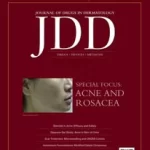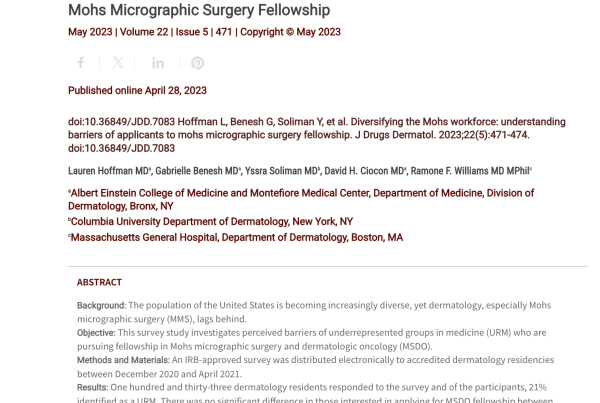Featured Article

Patients with moderate to severe psoriasis who achieved 75% or greater reduction in BSA showed an increased uptake in cosmetic procedures and this increase correlated with a reported improvement in quality of life after psoriasis clearance, the authors found.
Patients with moderate to severe psoriasis who achieved 75% or greater reduction in BSA showed an increased uptake in cosmetic procedures and this increase correlated with a reported improvement in quality of life after psoriasis clearance, the authors found.
A significant reduction in psoriasis body surface area (BSA) may motivate patients to seek cosmetic procedures, according to findings from a recent study, “Increased Trend of Cosmetic Procedures in Patients With Psoriasis Who Attain 75% or Greater Improvement.”
Patients with moderate to severe psoriasis who achieved 75% or greater reduction in BSA showed an increased uptake in cosmetic procedures and this increase correlated with a reported improvement in quality of life after psoriasis clearance, the authors found.
Researchers lead by Michelle Walters, M.D., Harbor-UCLA Medical Center, Torrance, Calif., examined the relationship between improvement in quality of life following a reduction in BSA and the use of cosmetic procedures. They identified 138 patients with a history of moderate to severe psoriasis from the Dermatology Institute and Skin Cancer Center in Santa Monica, Calif., and surveyed them using the Dermatology Life Quality Index (DLQI), adding an additional 5 questions related to the patients’ cosmetic procedures.
Of the group, 119 patients said they had never before undergone a cosmetic procedure due to their psoriasis. All of the patients responded that their quality of life had improved with their psoriasis treatment, and the majority (91%) said this improvement motivated them to undergo the cosmetic procedure.
The most common cosmetic procedures sought by these patients were neurotoxins, soft tissue augmentation and chemical peels. In addition, 79% of the patients purchased skincare products dispensed through the office.
“The improvement in quality of life following treatment of psoriasis with systemic or biologic agents noted in our study reflects results from previous studies,” the authors note. However, the authors state that there have been no studies that have examined a correlation between the improvement in quality of life following psoriasis treatment and an uptake in surgical or nonsurgical cosmetic procedures.
“We found that a common motive for patients who sought cometic procedures was the desire to further improve their quality of life after clearance of their psoriasis,” the authors say. They add that this study indicates that successful treatment of the condition may be a motivator for patients to seek cosmetic procedures for other skin indications.
Heather Onorati is an experienced medical writer and editor with more than 20 years covering the dermatology industry
Get More from the JDD
Get the latest psoriasis news delivered straight to your Inbox – sign up for the JDD Newsletter.
Discover the latest research, exclusive articles from leading dermatology experts, popular Podcast episodes, free CME activities, and more!
You May Also Like











